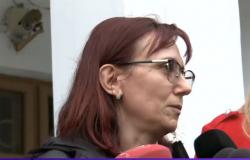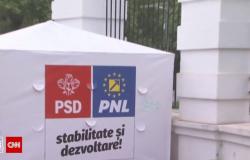
Romanian companies with up to 9 employees will be able to obtain new grants of EUR 25,000-200,000 for investment projects in Bucharest and Ilfov county, under certain conditions, through a funding line from the Bucharest Ilfov Regional Program (PRBI) 2021-2027 , supported with European funds. The list of eligible domains includes almost 200 CAEN codes, from IT and medical offices to architecture, photo studios or clothing.
I have written on StartupCafe.ro about regional funds for entrepreneurs in the Bucharest Ilfov region, and now the Bucharest-Ilfov Regional Development Agency (ADR) has launched the project of Applicant Guide for the call for projects PR BI P1/1.8/1/2024 – Call dedicated to support for sustainable growth and technological modernization of micro-enterprises under Priority 1 – A competitive region through innovation, digitalization and dynamic enterprises. Here you can also find the annexes to the draft Guide, including the list of eligible CAEN codes and the business plan model.
In short, micro-enterprises (up to 9 employees) that make investments in Bucharest or in Ilfov county, in the urban environment, will be able to obtain grants.
Until June 26, 2024you can also send suggestions for improving the guide, to the email address: [email protected].
The final guide should be published in June 2024, and the online project submission session should open in the MySMIS2021 system in August 2024, according to PRBI’s estimated calendar.
The budget, aid and own co-financing
The call for projects will have available a total budget of EUR 37,627,723.75 (of which EUR 15,051,089.48 from the European Union and the rest from the Romanian state).
From this money, eligible companies will be able to obtain de minimis aid of EUR 25,000-200,000/project, with an intensity of 90% of the value of eligible expenses.
The entrepreneur must also ensure, from his own resources, the rest of 10% from eligible expenses plus all non-eligible expenses from the project.
Eligibility conditions for beneficiaries of grants for micro-enterprises in Bucharest-Ilfov
The draft applicant’s guide contains a whole series of conditions that companies must meet in order to be able to obtain funding of EUR 25,000-200,000, including:
- The applicant must be a commercial company registered under Companies Law no. 31/1990 (SRL, for example), cooperative society established on the basis of Law no. 1/2005 (cooperatives), or operating under GEO no. 6/2011 (micro-enterprises opened by young entrepreneurs).
- The company falls into the category of micro-enterprises, according to Law 346/2004 and Law 62/2014 (it has up to 9 employees and achieves a net annual turnover or has total assets of up to 2 million euros, equivalent in lei). Not to be confused with the definition of micro-enterprise in the Romanian Fiscal Code, from the point of view of taxation.
- The company has its headquarters/office in the urban environment of the Bucharest-Ilfov Region. The geographical area targeted by the project, respectively the place of project implementation, is represented by the urban environment of the Bucharest-Ilfov Development Region.
- Projects that do not meet a minimum threshold of 70 points in the technical and financial evaluation stage will be rejected.
- The project proposed for financing has not started procurement procedures and/or execution works before the date of submission of the financing application, with the exception of the procedures related to the consultancy for writing the project, project management and for the preparation of the accounting expertise report/accountant’s statement. Procurement procedures, other than those mentioned above, can be started after the submission of the funding application.
- The proposed project has not benefited from public funding in the last 5 years, for the same type of activities carried out on the same infrastructure/same infrastructure segment, and does not currently benefit partially or fully from public funds from other funding sources, other than those of the applicant.
LIST of eligible CAEN codes: from IT to furniture manufacturing
The list of eligible fields of activity includes almost 200 CAEN codes that can be financed, according to the draft Applicant’s Guide. Among them we list a small part:
- 1320 Fabric production
- 1520 Footwear manufacturing
- 1413 Manufacture of other articles of clothing (excluding underwear)
- 1414 Manufacture of underwear
- 3109 Manufacture of furniture nec
- 2511 Manufacture of metal constructions and component parts of metal structures
- 5821 Computer game publishing activities
- 5829 Other software editing activities
- 5813 Newspaper publishing activities
- 6312 Activities of web portals
- 7311 Activities of advertising agencies
- 7420 Photographic activities
- 8621 General medical assistance activities
- 8622 Specialized medical assistance activities
- 8623 Dental care activities
- 7111 Architectural activities
Here, the company must meet a condition for authorization of the eligible CAEN code, targeted by the investment:
1. The applicant has authorized the CAEN code eligible for the investment, at the project implementation location, regardless of whether or not it carries out activity on the respective CAEN code.
OR
2. In the situation where the investment for which financing is requested involves the establishment of a new workplace, at the time of submitting the financing request, the applicant has:
- a) the CAEN code eligible for investment authorized either at the registered office/existing workplaces or at third parties, and the applicant undertakes that at the end of the implementation stage, he will prove the authorization of the CAEN code including at the project implementation location.
or
- b) the CAEN code eligible for investment entered in the constitutive act, and the applicant undertakes that at the end of the implementation stage, he will prove the authorization of the CAEN code at the project implementation location.
The applicant must comply with one of the above requirements, depending on the type of investment, respectively either point 1 or point 2 letter a), or point 2 letter b).
Activities eligible for micro grants of max. EUR 200,000 in the Bucharest-Ilfov Region
The official proposal of the Applicant’s Guide covers a whole series of activities that can be financed under the projects, including:
1. Investments in tangible assets in order to improve technical and industrial capabilities, in order to more effectively manage the development of products and services:
- Construction/expansion of production/service provision spaces, including provision of related general utilities, namely water supply, sewerage, natural gas supply, heat agent, electricity, PSI;
- The purchase of equipment, technologies (including green technologies), machines, work installations, as well as equipment included in the category of fixed assets: furniture, computer equipment, office equipment, etc.
2. Investment in intangible assets: computer programs, patents, licenses, trademarks, other rights and similar assets used exclusively in the field/fields of activity targeted by the project;
3. Investments for environmentally friendly production processes (goods or services) and efficient use of resources in SMEs involve reducing the use of raw materials, adopting less polluting production techniques, using renewable energy sources and/or efficient technologies from an energy point of view, minimizing waste generation and recycling materials, for example:
- the purchase of specific installations/equipment in order to obtain an energy saving and/or systems that use renewable (alternative) energy sources[1] for the efficiency of the activities for which funding was requested: the installation of low-energy lighting systems, the purchase of energy-efficient equipment/machinery, the automation of processes to reduce energy waste;
- the integration of pollution control technologies, which contribute to the reduction of greenhouse gas emissions;
- obtaining new ISO 14001 certifications – environmental management system;
- increasing the “content of recycled materials” in the finished product, while ensuring its performance and safety;
- the purchase of equipment/solutions/technologies with reusable components or the use of raw materials (including critical raw materials) obtained from recycled materials;
- the purchase of electrical and electronic equipment with a minimum percentage of reusable components (example: a percentage of 30% of the total equipment should have reusable components);
- purchase of construction materials containing a minimum percentage of reusable raw materials;
- other investments specific to the circular economy for the reduction, prevention, preparation for reuse, material recovery and recycling of the waste generated by the beneficiary (eg: the purchase of containers for the collection of WEEE or selective collection, or biodegradable shredders for plant and food waste; handing over waste from electrical and electronic equipment at the collection centers organized by authorized economic operators for the collection and recycling of waste based on a contract, etc.);
4. Activities specific to the internationalization, expansion of sales markets, the range of products and services offered by the type (the list is not exhaustive), including marketing activities generated by the participation of the applicant for financing, as an exhibitor, at national and/or external level at fairs, exhibitions:
- procurement of services for the analysis of international markets with potential and the selection of target markets;
- purchase of services for the realization of the export strategy for foreign markets;
- acquisition of innovation services for the creation of innovative products for entering international markets (justification of the need for the acquisition must result from an analysis of the target markets or from the export strategy);
- purchase of services for the realization of design for packaging and labeling, with a view to entering international markets (justification of the need for the purchase must emerge from an analysis of the target markets or from the export strategy);
- purchase of services for brand creation and promotion (justification of the need for the purchase must result from an analysis of the target markets or from the export strategy);
- purchase of services for certification and quality standards (justification of the need for the purchase must result from an analysis of the target markets or from the export strategy);
- procurement of promotion services on foreign markets;
- purchase services for participation in international economic missions, fairs, exhibitions, etc.;
5. Specific professional training activities for employees within the micro-enterprise, who will be involved in the operation of the new technologies/equipment purchased through the project;
6. Interregional, cross-border and transnational cooperation activities, such as:
- activities to strengthen cooperation between micro-enterprises and business associations, universities, research organizations;
- activities to support micro-enterprises for participation in networks (clusters, innovative business centers, etc.);
- the participation of micro-enterprises in S3 platforms, etc.
7. Design and consulting activities for the development of the financing request, the business plan and their annexes;
8. Project implementation management activities;
9. Activities regarding the financial audit of the project and accounting expertise/statement of the accounting expert;
10. Mandatory communication and visibility activities related to the project.
—
Read also:
Tags: Aid EUR micro companies Regional Program proposed guide list eligible CAEN domains
-




